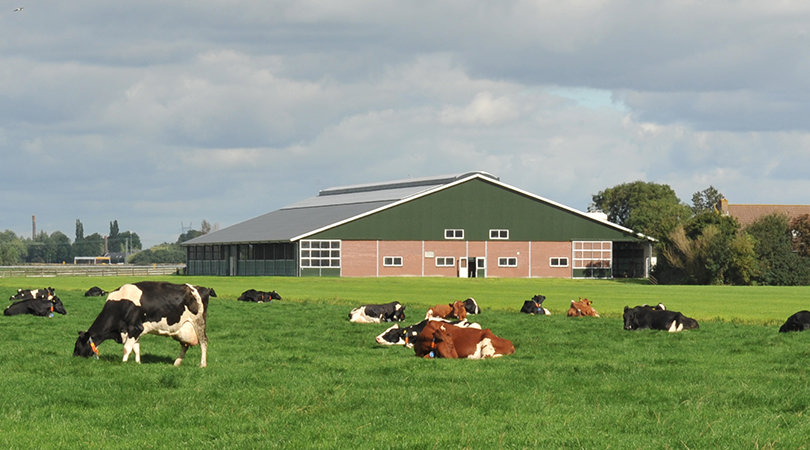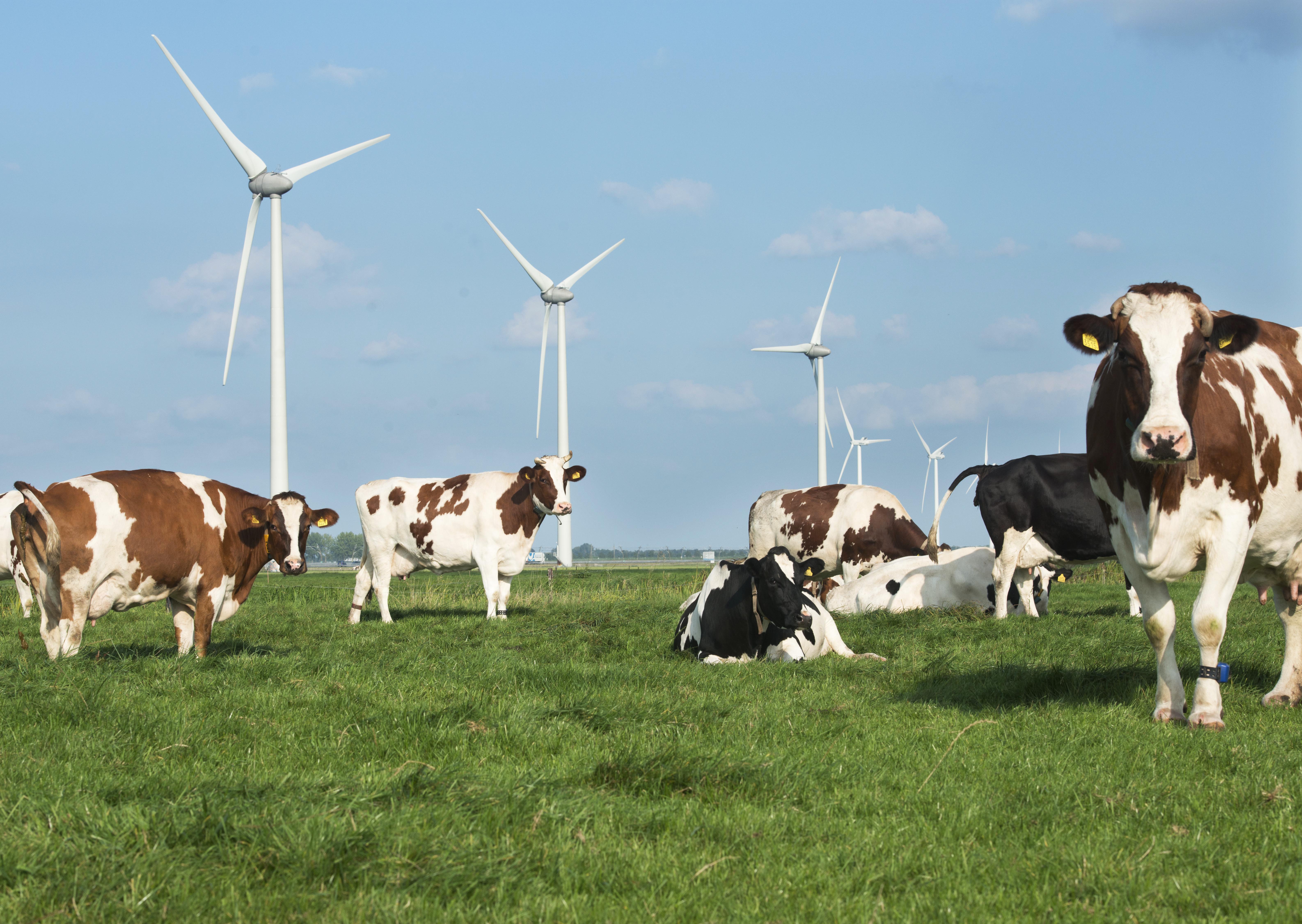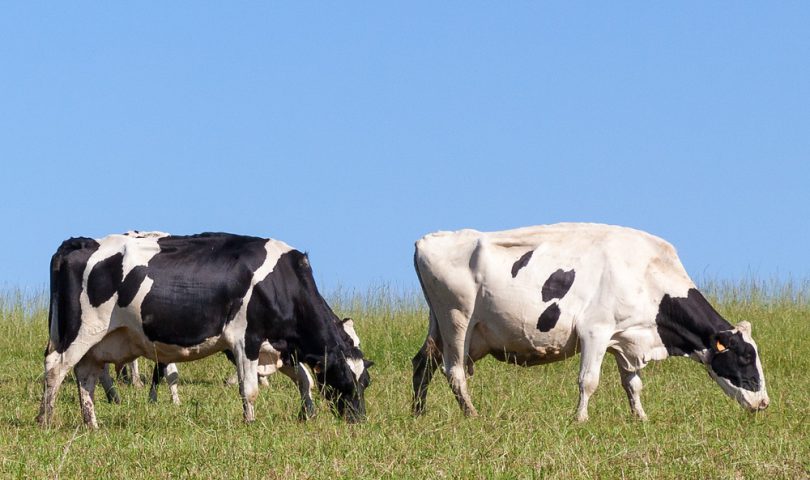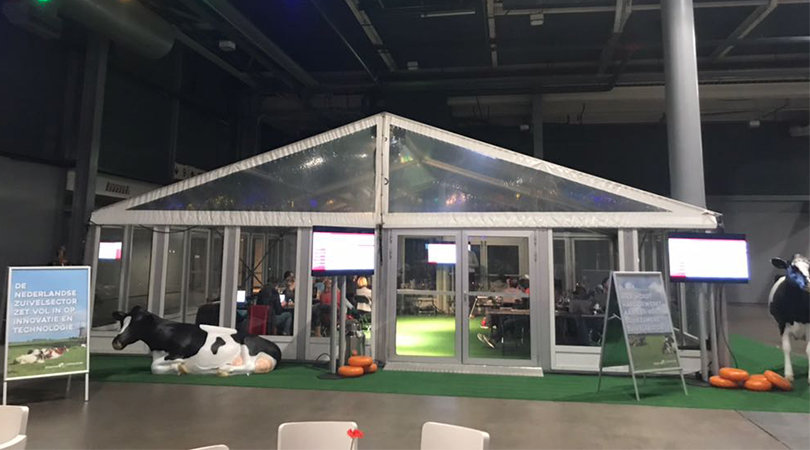

Sustainability
News overviewResponsible sector development after the milk quota ends
The Dutch dairy sector chooses land-based dairy farming and protects grazing for its cows. In the LTO Netherlands and the Dutch Dairy Association’s vision, there is no place for companies which do not have land. The same goes for dairy farms with tightly-packed barns. Dairy farms that apply for a renewal of their environmental permit will be rejected if they do not employ grazing, unless they bring in enough feed supplies from nearby. Dairy companies will not take or process milk from new farms which do not match this vision.
The LTO and NZO are pleased that the Dutch cabinet is making room for the development of dairy farming. Certainly this falls within the responsibilities of the government, society and the sector. Land-based farming and grazing are important elements in the LTO and NZO’s vision “Responsible development of Dutch dairy farming”.
After the milk quota ends, the dairy sector will continue to respond to the growing global demand for dairy as an important source of natural nutrients. In the future, this will also be realized within the Dutch government’s environmental requirements. With their vision, the LTO and NZO build on their earlier initiatives to further improve the sector’s sustainability (such as Sustainable Dairy Chain, the Grazing Agreement, and the Dairy Plan for Manure and Minerals).
Responsible development
The dairy sector advocates for the responsible development of dairy farming, with respect for the animal, the surroundings and the environment. In order to support the responsible development of dairy farming after the milk quota ends in 2015, the following measures will be taken:
– Maintaining grazing at its 2012 level, in accordance with the Grazing Agreement. The sector will take appropriate steps if the target level is not met;
– Establishing a phosphate limit and taking measures to keep dairy farming within the government’s environmental requirements for phosphate, ammonia and greenhouse gasses;
– Calling the government to deny permits to dairy farms that do not meet certain requirements;
– Dairy companies refusing milk from dairy farms that do not meet certain requirements.
With these measures, the LTO and NZO answer the sector’s and society’s questions about the future of dairy farming in the Netherlands.
Land-based, family company
Dairy farming has always been a land-based sector in the Netherlands. The relationship between land and animal is vital, and is also extremely important to preserving the country’s scenery. In their vision, the LTO and NZO place the land-based, family company at the foundations of dairy farming. The dairy farm must fit into its local surroundings, and its cows should be visible to the public. Together, dairy farming and the dairy industry form a robust economic sector, with concrete goals for climate & energy, animal health & welfare, and biodiversity & the environment.
Taking steps itself
The LTO and NZO aim to realize their vision by cooperating with partners across the chain to innovate and thus enhance the sector’s sustainability. The sector itself is taking responsibility for reaching the proposed sustainability goals. It is also working to ensure that dairy farming will develop according to the proposed environmental requirements (Dairy Plan). Independent monitoring and reporting take place every year. The sector takes mandatory steps if it appears that dairy farming is producing more manure and minerals than allowed by the government’s environmental requirements. For this reason, the sector is going to work with an “early warning” system to monitor the phosphate limit. If necessary, measures may also include: reducing the phosphate content in animal feed; applying the “Life Cycle Tool”, a management tool for dairy farmers, more widely; or introducing a phosphate tax on excess phosphate produced by an individual dairy farm. If these measures do not work, the government can increase the manure production percentage and set limits to expansion.
To maintain the 2012 grazing levels, appropriate measures are being taken where necessary. These include a higher financial reward (grazing premium), a penalty for companies that do not comply, and workshops/advice on grazing. The partners in the Grazing Agreement are asked to contribute to protecting grazing.
Appeal to licensing authorities
The LTO and NZO are calling regional and local licensing authorities to keep this vision in mind when awarding new permits. They can do this by setting additional permit requirements that will guarantee that these farms remain land-based. In the LTO and NZO’s vision, companies which need an environmental permit should either practice grazing or bring in enough feed supplies from nearby. The dairy sector asks local and regional governments to deny permits to companies with tightly-packed barns or ones which do not farm on the land.




